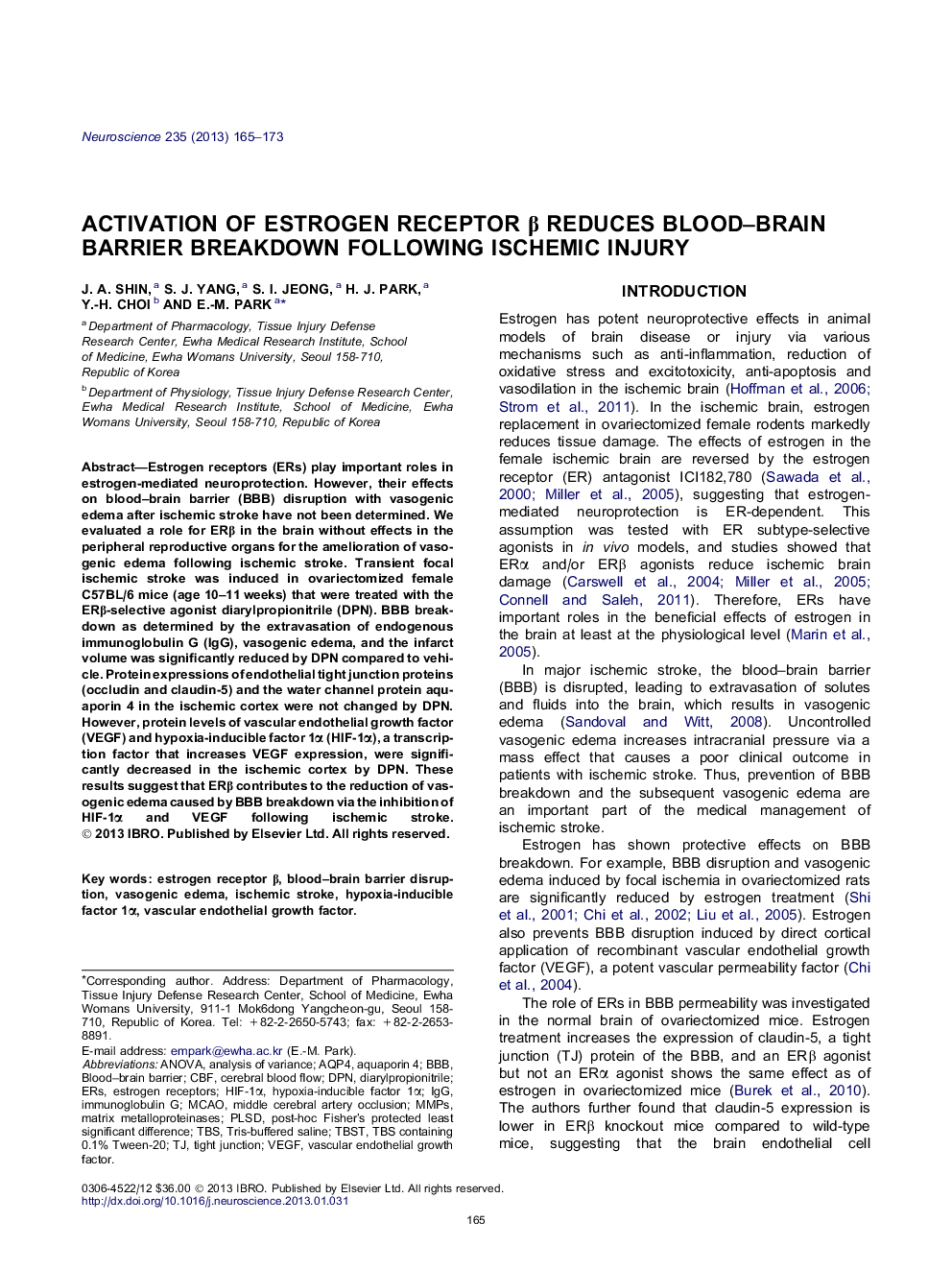| Article ID | Journal | Published Year | Pages | File Type |
|---|---|---|---|---|
| 4338048 | Neuroscience | 2013 | 9 Pages |
Estrogen receptors (ERs) play important roles in estrogen-mediated neuroprotection. However, their effects on blood–brain barrier (BBB) disruption with vasogenic edema after ischemic stroke have not been determined. We evaluated a role for ERβ in the brain without effects in the peripheral reproductive organs for the amelioration of vasogenic edema following ischemic stroke. Transient focal ischemic stroke was induced in ovariectomized female C57BL/6 mice (age 10–11 weeks) that were treated with the ERβ-selective agonist diarylpropionitrile (DPN). BBB breakdown as determined by the extravasation of endogenous immunoglobulin G (IgG), vasogenic edema, and the infarct volume was significantly reduced by DPN compared to vehicle. Protein expressions of endothelial tight junction proteins (occludin and claudin-5) and the water channel protein aquaporin 4 in the ischemic cortex were not changed by DPN. However, protein levels of vascular endothelial growth factor (VEGF) and hypoxia-inducible factor 1α (HIF-1α), a transcription factor that increases VEGF expression, were significantly decreased in the ischemic cortex by DPN. These results suggest that ERβ contributes to the reduction of vasogenic edema caused by BBB breakdown via the inhibition of HIF-1α and VEGF following ischemic stroke.
► ERβ activation decreased BBB disruption with vasogenic edema after ischemic stroke. ► TJ proteins and AQP4 protein levels were not affected by ERβ activation. ► An ERβ agonist reduced protein levels of VEGF and its transcription factor HIF-1α.
